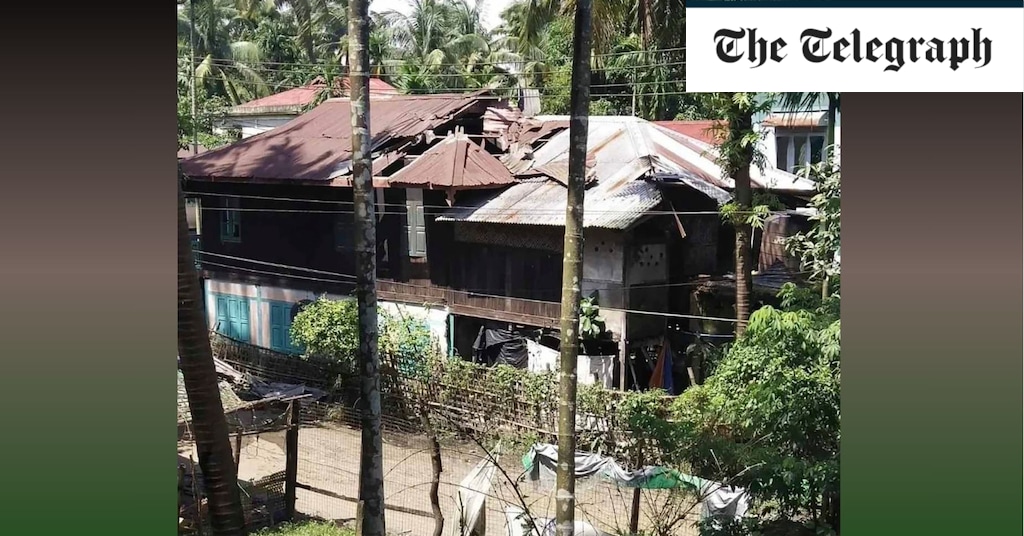
“I heard the deafening sound of shelling multiple times,” said Mohammed Eleyas, 35, who is now living in a refugee camp in Bangladesh. His wife and two-year-old daughter were killed in the drone strike alongside many other relatives.
The medical group Médecins Sans Frontiéres – which had to close operations in Buthidaung after its pharmacy was burned down in April – has also warned that it has seen a surge in violence-related injuries among Rohingya who manage to cross the border into Bangladesh.
In four days preceding August 7, the organisation treated 39 people for issues including mortar shell injuries and gunshot wounds – the first time this year that they have seen such serious injuries on this scale. More than 40 per cent were women and children.
“Considering the rise in the number of wounded Rohingya patients crossing from Myanmar in recent days, and the nature of the injuries our teams are treating, we are becoming increasingly concerned about the impact of the conflict on Rohingya people,” Orla Murphy, MSF’s country representative in Bangladesh, said.
Yet tensions have been rising for months. Until last week, one of the worst examples of this trend was an arson attack in the Rohingya majority town Buthidaung on May 17, where at least 45 people died and 200,000 residents fled after Arakan Army soldiers armed with petrol-soaked sticks set fire to buildings.
Human Rights Watch on Tuesday said several survivors had seen the bodies of people beheaded, including children, while more than 40 villages and hamlets in the Buthidaung area were partially or completely destroyed by fire from April 24 to May 21. Analysis of the patterns of destruction suggests these attacks were deliberate.
The Arakan amy denies carrying out the attacks but the UN said there was “every indication” it was responsible.
‘You’re not freedom fighters’
John Quinley, director of Fortify Rights, said that the armed group has committed abuses against the Rohingya for years, and described this incident as a turning point.
“The arson attack that happened in Buthidaung was one of the major attacks that really marked a change in the Arakan Army’s stance towards the Rohingya,” he said, adding that the group is committing war crimes. “If you’re going to abuse Rohingya people living in your state you’re not a revolutionary group, you’re not freedom fighters.”
In the report, Ms Pearson urged the international community to put more pressure on both the military junta and Arakan army to uphold international law or “once again face a situation of ethnic cleansing”.
Ms Lau added that the international community should provide more humanitarian assistance, introduce targeted sanctions and weapons embargoes, and for actors in Myanmar to be referred to the International Criminal Court.
“The Rohingya are the world’s largest stateless population… they’re incredibly vulnerable. The UK and other governments should be doing everything they can to try to help them,” she said.
Protect yourself and your family by learning more about Global Health Security

